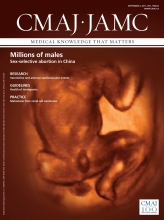Phoebe’s two-year-old fists pound thickly on the locked door of my bedroom. Despite my husband’s efforts to coax her away so I might get the quiet hour I need, those sturdy little feet paddle back anyway. The room shakes as she body-slams the door in an effort to break it down.
Clearly, the plan isn’t working.
But I’m determined. It’s taken me forever to find the time to interview Dad for a family history project I’ve been working on for four years. I could have finished it a long time ago. Work, sleep, grocery shopping … I can list a dozen things that seem more important.
Guiltily, I ignore the pounding. My excuse is that I’m doing this for her and her siblings. My dad is a psychiatrist, and both he and my mother immigrated to the United States from Korea in the mid-1960s. Growing up, I heard plenty of their life stories and am more than able to understand domestic hanguk (“Clean your room! Set the table!”), but as a parent I’m panicked about seeing their culture diluted down to nothing. The interviews I’ve done so far prove that I’ve heard only a fraction of their stories.
The pounding on the door finally stops. I press the record button and begin where I left off months ago.
“Okay, Dad. So do you remember having childhood illnesses? Like the measles or mumps?”
“Ah, I got the measles twice you know.”
My eyebrows furrow, because I know this can’t be. Dad doesn’t give me a chance to interrupt.
“Of course, that’s not possible, but that is what my mother told me. I was terribly sick. I was two years old the second time around. Everyone knew that a child that sick didn’t survive. So they did what everyone did in those days, when there was no hope for a dying child. They put me in the bedroom with a bowl of water. And then everyone left the house.” He paused, letting me ask the obvious.

Image courtesy of Pablo Quiroz
“Waiting for …”
“Waiting for me to die. You see, everyone knew it is too hard for a mother to watch her child die. It was better this way. But when they all came back, they found me knocking at the door and asking for mama. I had drunk all the water. I had gotten better, and survived.”
My mouth sags open in surprise. My dad’s existence, and hence my own life and children, hung in the balance within that room, between the translucent paper of those sliding doors. Luckily the tape recorder is still going, the flashing red light telling me that we are getting every word, loud and clear.
“My family was shocked. They expected the worst, and it would have been twice as bad since the same thing happened to my sister.”
I am trying to remember, but it has been too long since our last interview. Dad had two sisters who died tragically. The older sister was a highly intelligent and talented girl who died from “consumption” shortly after a spirit-crushing arranged marriage. Dad told me she probably suffered from major depression and the tuberculosis found an easy target. I can’t remember what happened to his other sister. Without asking, he fills in the gaps.
“This sister had been only a few years older than me. She died at age two, also supposedly from a second bout of measles. That time, when my family left her to die in the room all alone, she did not survive.”
I want to fill the subsequent silence with another question, but I can’t. I can’t stop seeing the limp body of a tiny girl with dark hair, lying still on the floor mattress of my father’s house.
Dad’s voice sounds gruff now.“When I see Phoebe, I always think that my sister must have been just like her. They said she was so smart, so clever.” He sighs. “Nowadays, of course, we have vaccines. It would have been so … different.”
I am suddenly ashamed of how terrifically spoiled I’ve become. In the office, I tick off the tetanus boosters and flu vaccines on the never-ending list of health maintenance items to keep up to date on my patients. I get irritated when the vaccines are out of stock. I never spend an iota of time wondering what would happen if those vaccines didn’t exist.
And in my own life, I take vaccinations for granted too, dragging the kids to the pediatrician for another set of shots, dreading the fevers and crabbiness that occasionally follows. I would have had an aunt if these modern annoyances existed seventy years ago.
An hour later, our interview is over, but my sleeve is damp because the vision of a tiny, dark-haired girl lying alone and lifeless in an empty room refuses to leave my mind.
Days later, I call my father to ask what my aunt’s name was.
“I cannot remember. Our family did not allow us to speak of her. It was too painful. I’ll look it up in our genealogy records.”
A short time later, he emails back.
Hyang-dong. Depending on how you look at the Chinese translation, it could mean “beautiful fragrance that comes from the east.” Or, “a beautiful beginning.”
Her name makes me catch my breath for a moment. I start to type out a thank-you in response. Something shoves my legs away from the table where my computer rests.
“Mama, off.” It’s Phoebe, her bright, dark eyes telling me to turn off the computer and play with her. I smile, and close my laptop.
Footnotes
-
This is a true account. Consent from the author’s father was obtained.








